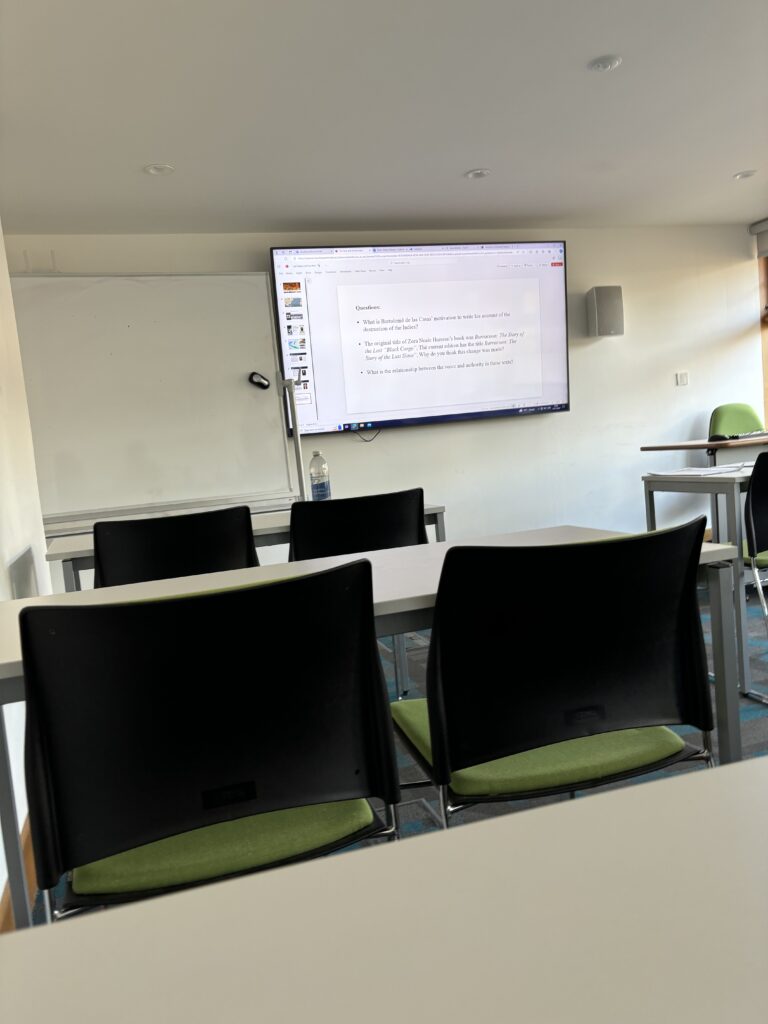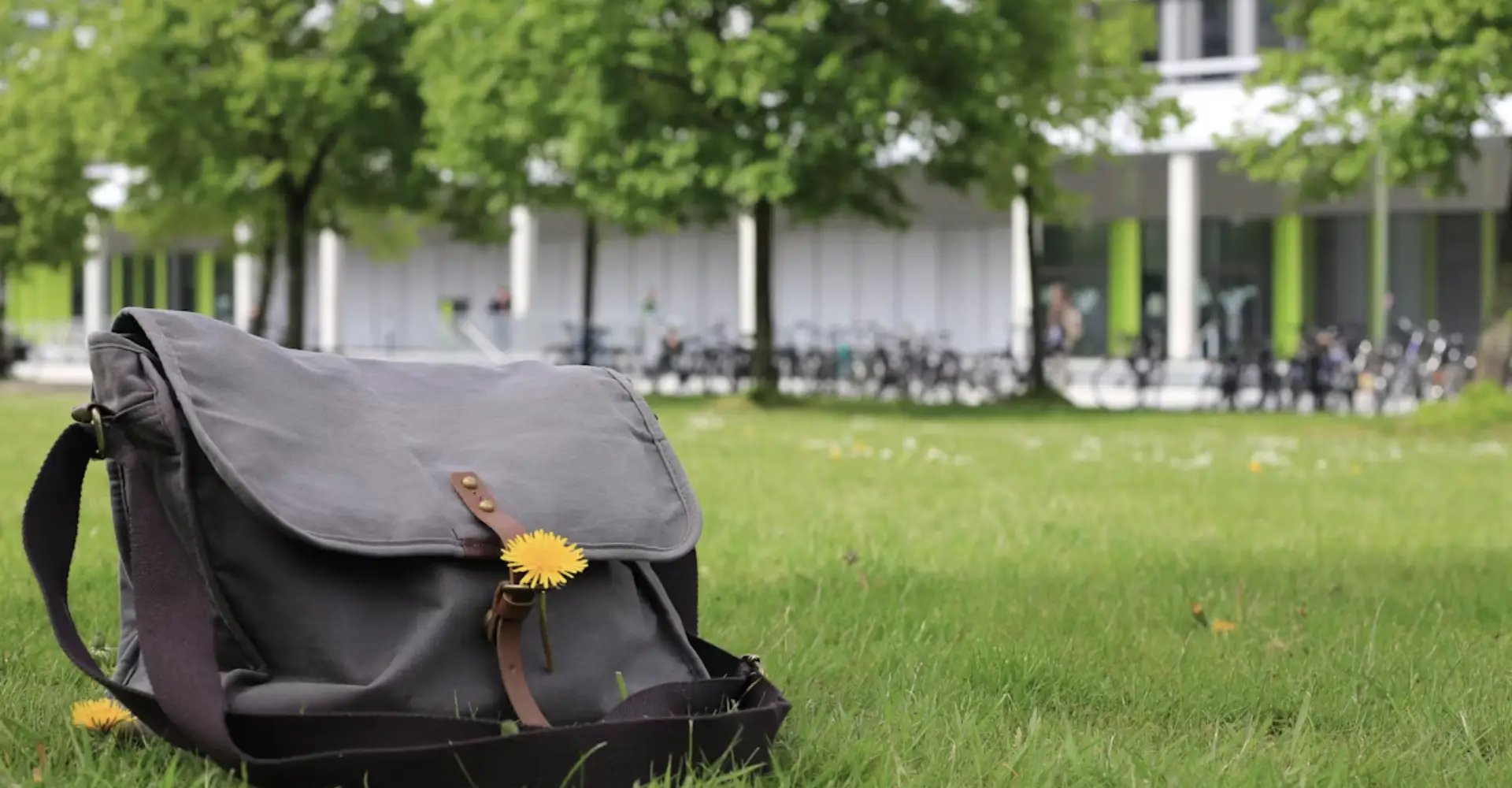The jump from school to university can be quite a shock. One of the first things you’ll notice is how much free time you’re suddenly given. With most university courses having a minimum of eight hours of contact time a week, it is left down to you to decide how to spend the remainder of the time. This is what a typical day at university can look like.
Lectures and seminars

No one has the same typical day at university but there are commonalities in what schedules will look like. University schedules are usually set up so that you have at least one lecture or seminar per day. However, this can vary depending on the year, term, or university. Sometimes I only have a one-hour lecture in a day; other times, all four of my seminars are crammed into one. It really depends.
A lecture is a presentation delivered by a lecturer. This usually lasts between 50 minutes to two hours. Each week, the lecture focuses on a new topic within the wider subject of the module. The presentations are comprised of key information, theories, thinkers, and ideas relevant to the theme. It can sometimes feel like an information overload, so it’s important to develop good note-taking skills to ensure you’re taking down the most salient points.
Most lectures are followed by a seminar (sometimes called a tutorial). Seminars are smaller, interactive discussion groups led by a tutor (a lecturer or graduate teaching assistant), and they typically last about an hour. In these sessions, you will zoom into a specific part of the week’s topic. During the seminar, you will also have the opportunity to discuss the readings and lecture content, as well as any other activities prepared by the seminar leader. This is your chance to share your ideas and thoughts with fellow peers, ask questions, and clarify anything you found confusing.
If you need more clarification, here’s a more in depth explanation on the difference between a lecture and a seminar.
Independent study time

University courses often require up to 25 hours of independent study a week. This means a significant amount of your day at uni will be spent working on your own. This can include completing weekly readings, making notes, drafting questions, and revisiting lecture materials—whether that means rewatching recorded sessions, reviewing PowerPoint slides, or rewriting notes.
This also includes completing any assignments or tasks set for the week. For example, I’ve had modules where we had to submit weekly reflective diaries or activities for grading. Weekly quizzes or mini-assessments to check your understanding are also quite common.
Office hours
It might be a good use of your time to go to your lecturer, tutor or academic advisor’s office hours. Office hours are a period of time where you can go in to chat to your academic staff. This is your time to have them read essay plans, go over results you’ve had back or just build rapport with them by talking about topics you’ve found interesting.
A good use of a typical day at university is attending office hours. These are specific periods of time when your lecturers, tutors or academic advisors are available for a one-to-one chat. You can use this time to discuss essay plans, ask for feedback on marked assignments, or simply build rapport by talking about topics you found interesting. It’s a great way to get personalised support and make the most of your academic experience, especially since the one-on-one connection you had in secondary school is less common at university.
Leisure time and striking a good balance

To stay productive and maintain balance, I like to stick to a 9 AM to 3 PM or 10 AM to 4 PM schedule, similar to a school day. During this period, I will attend my lectures and seminars, go to the library for independent studying or study groups. Once I’ve reached the end of this time slot, I’ll head home and take some time to relax and recharge. One of the biggest lessons I’ve learned at university so far is the importance of carving out time for myself. During this “me-time,” I enjoy grabbing a matcha, watching a show, reading a book, or baking.
Once I’ve had a proper break and something to eat, I’ll pick up any remaining work I need to finish before the day ends. This helps me maintain a healthy work-life balance without letting tasks pile up.
A typical day at uni may revolve around academic commitments, but student life is about so much more — from personal growth and social connections to discovering your interests and building independence. This guide offers just a glimpse into what university life is really like — a journey shaped by how you choose to make the most of your time.
Everyone’s day looks a little different, as you have the flexibility to structure your time in a way that suits you best. While the freedom can feel overwhelming at first, building a routine that balances lectures, independent study, and leisure can make all the difference. While a typical day at uni is full of academic commitments, there’s much more to student life so here’s a guide to what university life is really like for a student.
Author
-
I'm currently a BA Anthropology student so people watching is my favourite thing! I love going to concerts, pop culture and reading. In my free time, I love trying new places to eat.
View all posts






